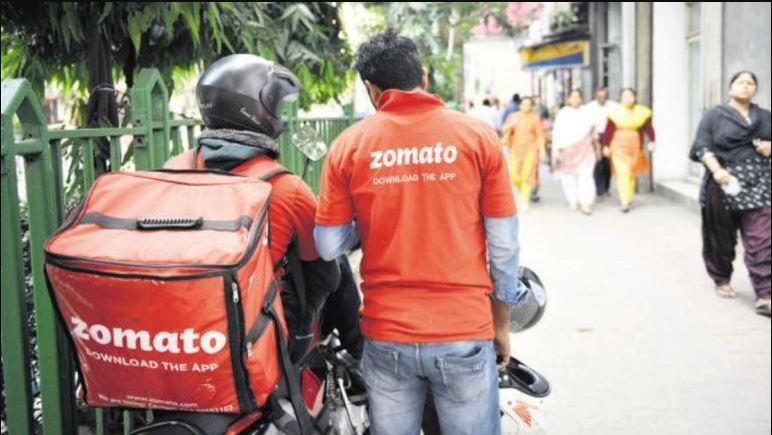Zomato, the food delivery app which faced intense controversy over whether food has a religion or not a few weeks ago, stands exposed by its own workers in West Bengal. The delivery boys of the company are on strike over the fact that the food being delivered by them is hurting their religious sentiments.
The delivery boys do not want to deliver the food which hurt their religious sentiments because they see it as a sin. “Recently some Muslim restaurants have been added to the online food delivery app. But we have some Hindu delivery boy who are denying to delivery beef. And it’s been heard that in few days we have to deliver Pork, which we refuse to deliver. We are also facing pay out issues and have least medical facilities. All these are hampering the fraternal bond between us as we have to deliver food which is not permitted by our religion. Our religious sentiment is being hurt. The company knows everything, but in spite of helping us they are using false allegations against us,” said Mousin Akhtar, a Zomato food delivery boy.
A Hindu deliver boy named Bajraj Nath Brahma complained over forced delivery of beef. “I am Hindu. There are also other fellow delivery boys who are Muslim. We have no issues in working together. Zomato has presently tied up with some new restaurants that are repelling us to work under any circumstances and we cannot cancel any order at any cost. If any of us deny delivering any particular food then this would fall under denial dispute which would be followed up by manager. The Muslims are equally feeling hurt with this decision as we Hindus are. The company is hurting our religious sentiment. We want this to be stopped immediately. Hence from Monday we have stopped our service,” said Brahma.
The protest of the worker completely exposes the company that was proud to announce “Food doesn’t have a religion. It is a religion,” and its founder Deepinder Goyal who tried to take a moral high ground during the controversy. “We are proud of the idea of India – and the diversity of our esteemed customers and partners. We aren’t sorry to lose any business that comes in the way of our values,” tweeted Goyal on the day.
We are proud of the idea of India – and the diversity of our esteemed customers and partners. We aren’t sorry to lose any business that comes in the way of our values. 🇮🇳 https://t.co/cgSIW2ow9B
— Deepinder Goyal (@deepigoyal) July 31, 2019
The argument that “food doesn’t have a religion” obviously does not make much sense. In India, at least, food does have a religion. If we put it in a subtly different way, our eating habits and choice of food is certainly guided by our religious sentiments and personal faith. What we eat is guided by our religious sentiment which essentially ends up giving a religious angle to food as well. The entire controversy over beef, for example, emerges out of religious beliefs. If food didn’t really have a religion, then ideas like Halal would not have been institutionalised. Special menus for Navratra and Ramadan would not have been a part of restaurants. In fact, Zomato has also emerged as an app through which Navratri food can be ordered. If food does not have a religion, then why does Zomato make a special case for Navratri food?
Therefore it is very much indicative from the company’s own policies that food does have a religion. The protest by delivery boys which is based on their religious sentiments exposed that the company made the statement of food does not have religion only to take the moral high ground. The staff and management of the company know very well that food does have a religion.
